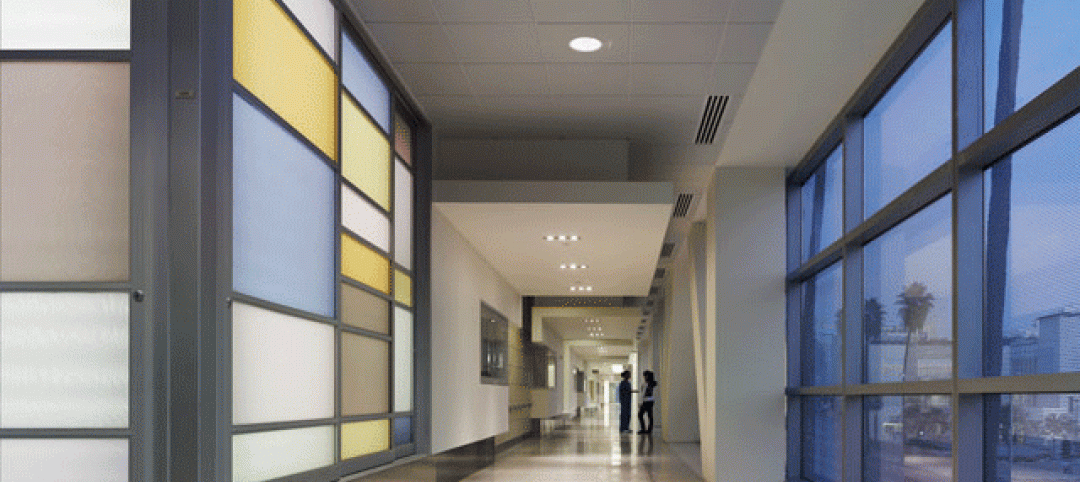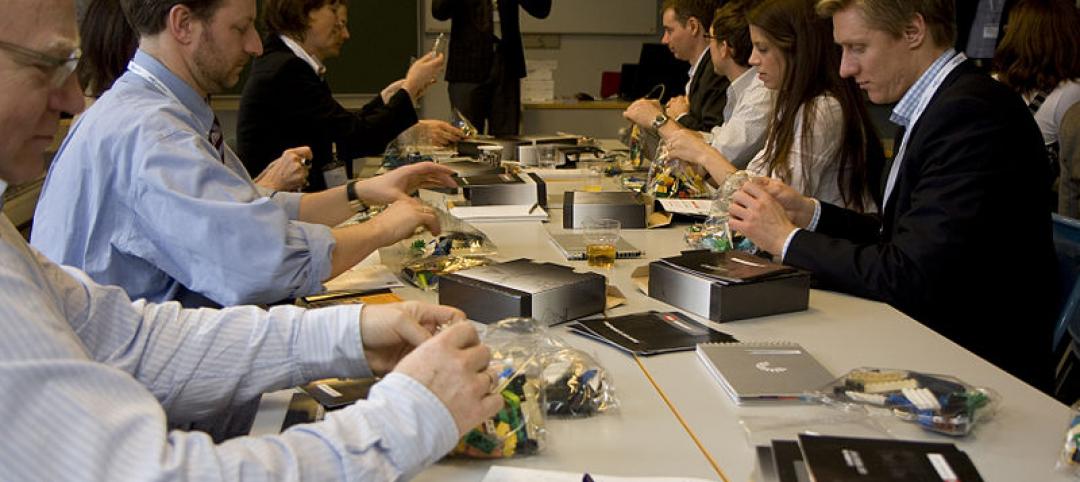Most people have created something out of Lego blocks at some point in their life, be it something small and simple like a Lego cottage, or large and complicated like Han Solo’s Millennium Falcon. At the very least, you have probably felt the wrath of one of your kid’s stray blocks, stepping on it as you walked barefoot through the house at midnight.
Regardless, Legos are typically thought of as toys or hobbies, but Adam Reed Tucker, a former architect whose business was decimated by the poor economy, is creating architectural mirabilia out of these colorful plastic blocks worthy of their own exhibit at one of the top museums in the country.
As The Chicago Tribune reports, Tucker has an estimated 9 million Lego bricks at his Chicago-area home that he uses to build his displays. His first creation was the product of a day sitting in Barnes & Noble thinking about what he wanted to do with his life after his firm closed. He wanted to work with his hands, and remembered he was good at making models as an architecture student.
His next stop was Toys R Us, where he purchased a Hogwarts Lego set and used the provided pieces to make a replica of Frank Lloyd Wright’s Fallingwater. These smaller projects grew into larger ones, such as an 8-foot-tall model of One World Trade Center (with one side left exposed to show how the building was made and why it collapsed), until, eventually, he was using tens of thousands of Lego blocks on one project alone.
Currently, Tucker has 13 pieces - and 310,000 blocks - on display at the Museum of Science and Industry as part of his “Brick by Brick” exhibit. Each piece in the exhibit shares the common theme of being an architectural wonder, such as a 60-foot-long replica of the Golden Gate Bridge created from an estimated 64,500 bricks, a Roman coliseum constructed of 22,500 bricks and shown in a cutaway to expose its manner of construction, and a Hoover Dam meant to mimic its appearance in old black and white photos.
Tucker has three more exhibits planned; one that focuses on the story of the industrial revolution, one focused on the work of Frank Lloyd Wright, and one that puts Walt Disney’s work on center stage.
Click here to view images from the “Brick by Brick” exhibit.
Related Stories
| Sep 22, 2014
Swanke-designed Eurasia Tower opens in Moscow
The 72-story tower—the first mixed-use, steel tower in Russia—is located within the new, 30 million-sf, 148-acre Moscow International Business Center.
| Sep 22, 2014
USGBC names 2014 Best of Buildings Award winners
The Best of Building Awards celebrate the year’s best products, projects, organizations and individuals making an impact in green building.
| Sep 20, 2014
Healthcare conversion projects: 5 hard-earned lessons from our experts
Repurposing existing retail and office space is becoming an increasingly popular strategy for hospital systems to expand their reach from the mother ship. Our experts show how to avoid the common mistakes that can sabotage outpatient adaptive-reuse projects.
| Sep 19, 2014
Smithsonian Institution opens LEED Platinum lab facility
The Charles McC. Mathias Laboratory will emit 37% less CO2 than a comparable lab that does not meet LEED-certification standards.
| Sep 19, 2014
8 hot healthcare projects win interior design awards
Winners of IIDA's 2014 Healthcare Interior Design Competition include Perkins+Will, AECOM, Buffalo Design, and SmithGroupJJR, for projects from Cincinnati to Toronto.
| Sep 18, 2014
Final designs unveiled for DC's first elevated park
OMA, Höweler + Yoon, NEXT Architects, and Cooper, Robertson & Partners have just released their preliminary design proposals for what will be known as the 11th Street Bridge Park.
| Sep 17, 2014
Arquitectonica's hairpin-shaped tower breaks ground in Miami
Rising above Biscayne Bay, the 305-meter tower will include three viewing decks, a restaurant, nightclub, and exhibition space.
| Sep 17, 2014
Atlanta Braves break ground on mixed-use ballpark development
SunTrust Park will be constructed by American Builders 2017, a joint venture between Brasfield & Gorrie, Mortenson Construction, Barton Malow Company, and New South Construction.
| Sep 17, 2014
The doctor is in: New consortium to fund research of design's influence on public health
The AIA Design & Health Research Consortium has organized its design and health initiative around six evidence-based approaches.
| Sep 17, 2014
New developments in data center design
From the dozen or so facilities housing Google’s 900,000 servers to the sprawling server farms of Facebook to Amazon’s seven sites scattered around the world, today’s data centers must accommodate massive power demand, high heat loads, strict maintenance protocols, and super-tight security. This AIA Discovery course is worth 1.0 AIA CES HSW learning units.

















